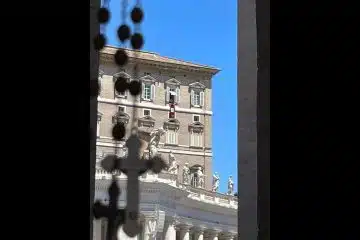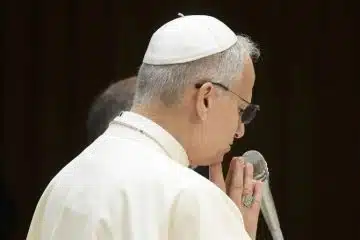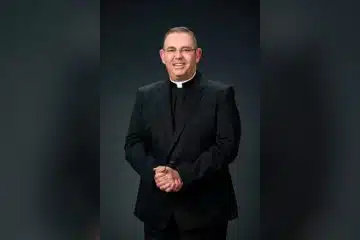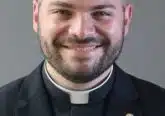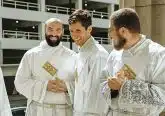Catholic Discipleship in Liberal Protestant America
In the midst of rapidly changing social norms, the challenges of Catholic discipleship in the U.S. have become increasingly difficult and frustrating. Making matters worse, Catholics can be found on both sides of polarizing cultural and political issues, each thinking theirs is the only reasonable position for a Catholic to hold. This precarious situation is a symptom of the same basic malady on both sides. We have abandoned (or forgotten) the moral language of Catholicism and replaced it with a moral dialect that leads inevitably to failure and frustration.
Put another way, we Catholics find it difficult to speak to one another because we have allowed ourselves to be informed by one of the two dominant variations of American liberalism, as found in the two dominant political parties in the U.S. Both parties accept the same individualist moral anthropology, differing only in the details of how they should be applied. Unfortunately, this is also the view of the human person that most U.S. Catholics accept. Catholics on one side of the aisle are happy with the practical implications of this individualist theory, while those on the other side are unhappy with such implications, but so thoroughly embedded in the theory, they cannot articulate a coherent practical alternative to it.
In many ways, this is an unsurprising and even sympathetic state of affairs. We don’t want to live in conflict with the moral and political theory that formed American politics, law and culture, so we tried to find an articulation of faith that is compatible with American liberal ideals. We see the tension between faith and politics, and think that we must find a resolution to the tension. Catholics want to live peaceably as American citizens, so we embrace and endorse moral and political theories that define and delimit what that means. But the cost of this compromise has been the consistency and integrity of our own theological language and witness. We collapsed our faith into the same political continuum of liberalism, and we staked out opposing positions on one of its two extremes.
In one sense, of course, this problem of Catholicism’s relationship to cultural, civic and political identification is as old as Christianity itself. While contemporary debates do seem to be especially contentious, the problems that underlie them are inherent in the very nature of Catholic faith and practice. Indeed, Catholic discipleship is routinely described in expressly political terms: Christ the King, Mary Queen of Heaven, God on his Throne. These suggest that Catholics are subservient to authority that is potentially in tension with, if not contradicted by, other politics. This tension was at the heart of late 19th century anti-Catholic legislation and political rhetoric in the U.S., characterized by such things as the rise of so-called Blaine statutes and amendments and the editorial cartoons of people like Thomas Nast.
In response to these anti-Catholic movements—to show that we can be good American citizens—Catholics gradually ceded the moral arguments that distinguish Catholic discipleship from American patriotism. To be accepted by the liberal and Protestant American culture, we unwittingly accepted the basic moral premises that formed that culture. In the process, we forgot the theologies and practices that separate being Catholic from being a certain kind of American. Our response to those who say that Catholics cannot be good Americans is to embrace the moral theory that informs being a good American, while compromising authentic Catholic discipleship and witness.
Thus, Catholics in the U.S. have difficulty even talking to one another in an authentically Catholic dialect. The typical American Catholic is more comfortable talking to a non-Catholic person with whom he identifies politically than with another Catholic. We lack a coherent moral and political vocabulary, which means we have little hope of articulating principles of freedom and common good to the broader culture, because we don’t even know what that looks like within the Church. Our moral and political lives are more likely formed by partisan identification than Catholic discipleship. We have reduced our moral lives to our partisan loyalties to such a degree that we think they are the same thing as Christian discipleship.
The first step toward solving this problem is to recover a Catholic moral language through what are sometimes called the “four pillars” of Catholic social doctrine: human dignity, common good, subsidiarity and solidarity. Each of these principles can be learned as a better way to think about social and civic issues, including legal, political, economic and regulatory matters. From abortion to immigration; from health care to capital punishment; from contraception to euthanasia, we Catholics have a moral language that is richer, deeper and more comprehensive than the individualist languages of American liberalism to which we so often unwittingly default. More importantly, and in contrast to these various liberal dialects, the language of Catholic social doctrine upholds the moral anthropology at the heart of the Catholic understanding of the human person.
We must begin to recover a moral language that is formed by Catholic moral doctrine rather than by liberal political theory. I am fully aware that it may be a quixotic effort. But the effort is worth the hope that we Catholics might once again be a witness to the integrity of faith, rather than participants in its demise.
This month’s column is adapted from the Introduction to Dr. Craycraft’s forthcoming book, Citizens Yet Strangers: Living Authentically Catholic in a Divided America, due in March from Our Sunday Visitor Press.
 Dr. Kenneth Craycraft is an attorney and the James J. Gardner Family Chair of Moral Theology at Mount St. Mary’s Seminary & School of Theology.
Dr. Kenneth Craycraft is an attorney and the James J. Gardner Family Chair of Moral Theology at Mount St. Mary’s Seminary & School of Theology.
This article appeared in the February 2024 edition of The Catholic Telegraph Magazine. For your complimentary subscription, click here.



